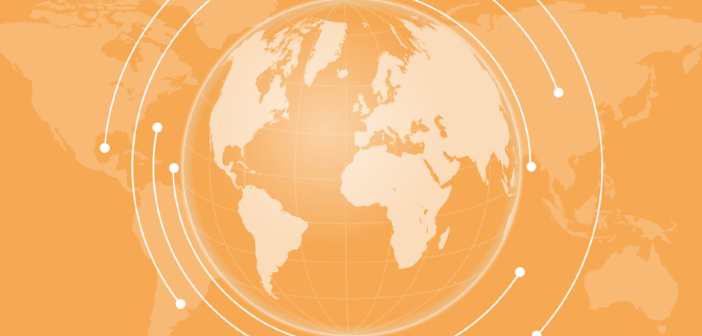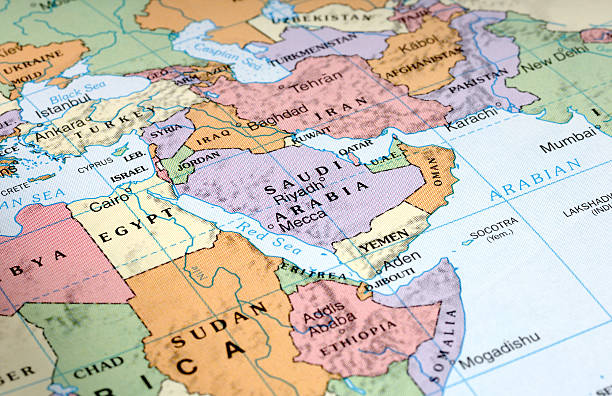
Click here for the full report
High Time for Diplomacy
Ali Tuygan
Last week, the US House of Representatives approved 40 billion dollars in additional aid for Ukraine by a vote of 368-57. The package of military, economic and humanitarian support was 7 billion dollars more than the 33 billion President Biden had requested. The package is expected to pass the Senate this week.
Ukraine’s Foreign Minister Kuleba told the Financial Times that the “picture of victory” has shifted to the full liberation of territories from Russian occupation. Ukraine has upgraded its war aims and is now looking to push Russian forces out of the country as long as western allies rapidly deliver promised heavy weaponry, Mr. Kuleba said.
On Saturday, the G7 once again said that they will not recognize borders Russia has attempted to change by military aggression and will uphold their engagement in the support of the sovereignty and territorial integrity of Ukraine, including Crimea.[i]
On Sunday NATO’s Secretary General Stoltenberg said, “Ukraine can win this war.”
And Finland and Sweden are about to formally apply for membership in NATO.
During the days of the Cold War, NATO published a monthly printed magazine. Its title was “NATO’s Sixteen Nations”. If Finland and Sweden were to join NATO, the Alliance would have added another sixteen nations to its ranks since 1999. Finland, moreover, shares a 1,300-kilometer border with Russia. Not bad for an alliance declared “brain dead” only three years ago.
President Putin’s decision to invade Ukraine was a huge miscalculation.
The Russian draft agreements presented to the US and NATO in December 2021 aimed firstly at preventing the further enlargement of NATO, and secondly securing the withdrawal of military forces and weaponry deployed on the territory of NATO members who had joined the Alliance since 1999. Now, the very opposite is happening.
President Putin’s plan to set up a puppet government in Kyiv has collapsed, adding another episode to the list of failed regime change projects. After three months of war, Russian forces still do not enjoy full control over Donbas. Western military support to Ukraine has been more than generous. US Defense Secretary Lloyd Austin has said he “wants to see Russia weakened”. Unprecedented Russia sanctions are in place. NATO is heading toward another expansion. Washington is engaged in a diplomatic offensive to broaden international reaction to the invasion.
President Putin is an autocratic leader. But considering the wreck he inherited from President Yeltsin, he has done a lot to restore Russia’s place in the world as a global power. He might not have been revered as another Peter the Great, but he could earn himself a place in the history of Russia. He has squandered the opportunity.
This is what happens under one-man rule.
What the invasion would entail for President Putin personally remains to be seen.
Despite the fine talk, however, the prospect of a victory freeing all Ukrainian territories under Russian occupation is unrealistic. Because President Putin will continue the war no matter what until Russia is firmly in control of Donetsk and Luhansk.
Moreover, the continued supply of sophisticated weaponry to Ukraine and the prospect of Finland and Sweden joining NATO may lead President Putin to escalate. Russian officials’ statements about the use of tactical nuclear weapons are not reassuring. On April 27, at a meeting with the Council of Lawmakers, President Putin said, “Let me emphasize once again: if anyone intends to intervene from the outside and create a strategic threat to Russia that is unacceptable to us, they should know that our retaliatory strikes will be lightning-fast.”
His ordering the use of tactical nuclear weapons may not come that fast but the possibility cannot be discarded.
On Saturday the G7 in a press statement said:
“Combined with Russia blocking the exit routes for Ukraine’s grain, the world is now facing a worsening state of food insecurity and malnutrition. This is having devastating consequences for some of the most vulnerable people and rising costs also make it harder for humanitarian and development agencies to deliver assistance to those in greatest need.” [ii] They called on Russia to end its blockade and all other activities that further impede Ukrainian food production and exports as a first step. They committed to working for global food security.
Looking at the examples of Yemen, Afghanistan, and the fight against Covid-19, their assurances would hardly convince the needy. On the contrary, the continuing rise in food and energy prices would only lead to a growing resentment toward the war.
Last week, the G7 also said, “We, the G7 Foreign Ministers of Canada, France, Germany, Italy, Japan, the United Kingdom, and the United States of America, and the High Representative of the European Union, express our strongest opposition and deplore the increasing restrictions imposed on the rights and freedoms of women and girls in Afghanistan by the Taliban.”
The Taliban must be panic-stricken.
In brief, it is past time to re-energize diplomacy and prevent further loss of life, suffering, devastation, and a global food and energy crisis.
This must have been the reason why Chancellor Scholz called President Putin last Friday.
And this is what Brendan Rittenhouse Green and Caitlin Talmadge said in their Washington Post article on May 11:
“But assume there is no nuclear escalation. A nearly inevitable result of expanded Western war aims will still be a longer, more intense conflict that grinds up cities and towns and keeps killing civilians. For an example of the kind of damage that a proxy war without end can cause, we need only look at Syria…
“We should not let Putin’s mistake of invading Ukraine prod us toward making our own error: spending valuable resources and attention on an escalating proxy war against an adversary that has already inflicted large wounds on itself.” [iii]
Last Friday, “Turkey is following the discussion over Finland and Sweden seeking to join the alliance, but for now, does not have a positive view,” said President Erdogan. “We are currently following developments. We currently do not have a positive position on the issue of Sweden and Finland (joining NATO)”, he told reporters, adding it was a mistake for NATO to accept Greece as a member in the past. “We don’t want to repeat similar mistakes. Furthermore, Scandinavian countries are guesthouses for terrorist organizations,” Erdogan said. “They are even members of the parliament in some countries. It is not possible for us to be in favor,” he added.
Greece left NATO’s military command in 1974 following the Turkish intervention in Cyprus but returned in November 1980 under an agreement brokered by General Bernard Rogers, at the time Supreme Allied Commander in Europe. The so-called “Rogers plan” was criticized in Turkey for giving a lot to Greece in return for nothing.
In 2009, the Turkish government also objected to Anders Fogh Rasmussen becoming the Secretary General of NATO on the same grounds but relented in the end.
A final note:
On July 8, 1709, the Russian army under the command of Tsar Peter I the Great and the Swedish army under the command of King Charles XII fought the last battle of the Great Northern War at Poltava, in Ukraine. “Thus, in a single morning, the Battle of Poltava terminated the Swedish invasion of Russia and permanently shifted the political axis of Europe…Poltava was the first thunderous announcement to the world that a new Russia was being born.” [iv]
After the battle, King Charles could not risk going back to Sweden through hostile lands. He crossed over into Ottoman territory and became the Sultan’s guest for the next three years, first in Bender in Moldova and later in Edirne. He returned to Sweden after the Ottoman Empire and Russia made peace with the signing of the Treaty of Edirne on June 24, 1713.
It seems that, three centuries later, Turkey and Sweden would once again become allies, hopefully after a good start.
———————————————————————————————–
[i] https://www.state.gov/g7-foreign-ministers-statement-on-russias-war-against-ukraine/
[ii] https://www.auswaertiges-amt.de/en/newsroom/news/g7-food-security/2531270
[iii] https://www.washingtonpost.com/outlook/2022/05/11/ukraine-war-expansion-risks-nuclear/
[iv] Robert K. Massie, Peter the Great, Ballantine Books, New York, 1981, pages 527-28









